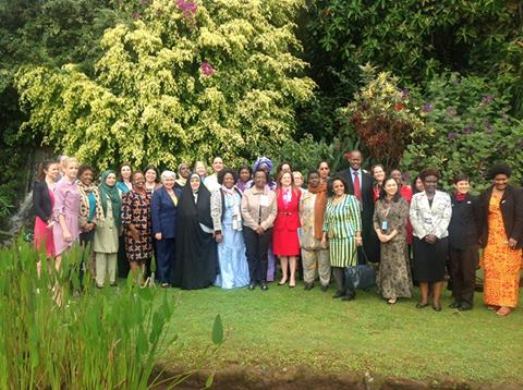Women are at the forefront of efforts to protect the environment. More importantly, as compared with men they cause less damage to nature and its invaluable treasure. This definitive verdict was part of a brief report in “Zanan-e Emrooz” [Today’s Women]. If the report had been written by a female writer, it could have come under fire for being biased toward women or for displaying a feminist tendency. But the fact that it has been penned by Bahram Moalemi eliminates the involvement of any feminist bias. What follows is the translation of the report:
The World Commission on Environment and Development (WCED) defines sustainable development as “Development that meets the needs of the present without compromising the ability of future generations to meet their own needs.” One of the fundamental parts of sustainable development is preservation of the environment and correct consumption of present resources. It is impossible to imagine that sustainable development can take place in the world without the contribution of women.
The ability of women to save and invest money in the family is completely obvious. Such ability plays a fundamental role in three major areas, including protection of the environment in today’s world, cutting down on consumption, and reuse and recycling.
The United Nations Conference on Environment and Development (UNCED) in Rio de Janeiro in 1992 [also known as the Rio Summit, Rio Conference, and Earth Summit] is deemed to have been be a turning point as far as the role of women is concerned. It was in Rio Declaration that the decisive role of women in securing sustainable development from social, economic, and ecological points of view was recognized and emphasized.
Under Principle 21, related to the conference agenda for the 21st century, women are considered a major group whose contribution to sustainable development is essential. According to policies adopted during the conference, empowerment of women and their complete and equal contribution are regarded as the foundation for peace and sustainable development. [“Women have a vital role in environmental management and development. Their full participation is therefore essential to achieving sustainable development.”]
The results of field studies over the last three decades across the world suggest that in terms of ecology and the environment, women’s knowledge is broader than men.
Also, women tend to be more eager and responsible when it comes to recycling, reusing waste and Environmentally Preferable Purchasing (EPP), aka Green Purchasing.
Who better than women, the epitome of motherliness, can understand the suffering which mankind has inflicted on “Mother Nature”, ease the pain of deep and excruciating wounds left on nature’s fragile body and look after this terminally ill patient? You never know, Lady Luck might smile on Mother Nature and recovery may come along.
Undoubtedly, women are the first who take a hit as a result of environmental degradation. Many researchers are of the opinion that throughout history, awareness on the part of women has contributed to the protection of the environment.
The fact that women and nature have been closely associated with each other throughout history makes for accounts that simultaneously detail the exploitation of women and nature. Women in underdeveloped and developing countries have more in-depth knowledge about flowers and plants, especially about their therapeutic values.
In particular, women living in villages, who play a key role in agricultural activities and in many parts of the world are tasked with supplying their families with water, are well aware of water and soil conditions as well as the determining factors influencing these two integral parts of natural resources.
There is no denying that women have a major role in running and managing families. Tapping into such management skills, a woman can defuse lots of the environmental crises in the world. Women can keep a rein on the excessive consumption of resources, cut down on the excessive use of water, energy and so on, avoid producing too much waste, separate wet and dry garbage, and above all, get their children equipped to take on environmental pollution at home and school, or in society at large.
Public contribution, access to information and justice are some of the principles of sustainable development. Under these principle, people should be able to be part of the decision–making process. Getting women engaged in thinking and planning, and in implementation of change is essential in all fields of decision-making. The role of women should not be played down, instead they should be seen as active planners and organizers of development activities.
As for the importance of women’s contribution to programs and activities intended to preserve the environment within the framework of ecological projects of world organizations such as the United Nations, the World Bank, the Food and Agricultural Organization (FAO), the World Wild Fund for Nature, the United Nations Environment Program (UNEP) and so on, we should say that their decisive role is completely obvious in decision-making and in implementation.
In developed and developing countries, there is a close and direct correlation between women and nature. Women are deemed as target groups as far as environment programs are concerned, and the accomplishment of such plans despite some almost insurmountable obstacles involved, depends on women’s direct and active contribution.
